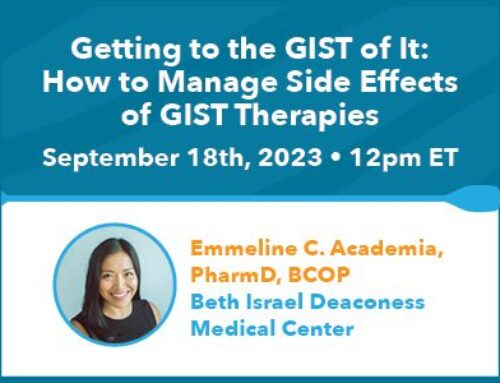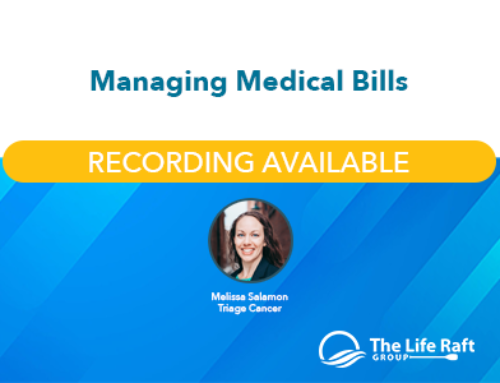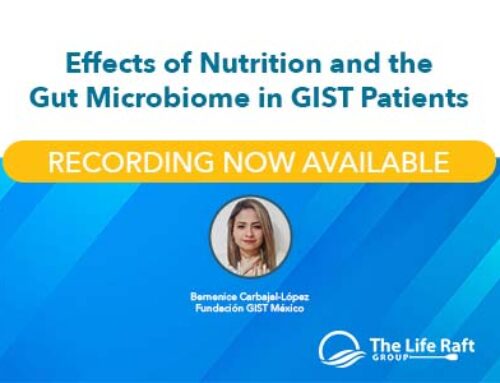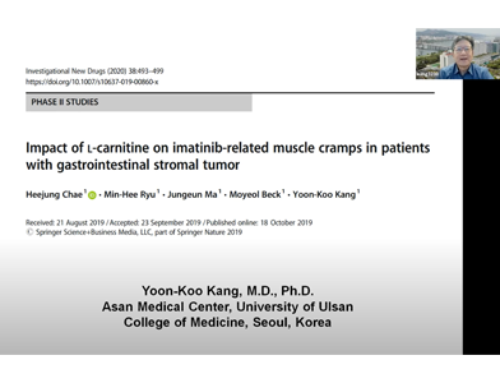GIST and its treatments often cause loss of appetite. There are some things that can be done to help stimulate your appetite.
Cooking and eating methods to prevent Loss of Appetite:
- Eat small meals. Eating a small amount of food more frequently will not make you feel full. If you eat less, you may want to eat less. Therefore, eating more often may stimulate your appetite.
- Prepare food that smells good and looks good. This will make you want to eat more. Also avoid areas that have unpleasant odors as this will decrease your appetite.
- Avoid greasy and fried foods. Foods that make you feel gassy should also be avoided as these make you feel full. Examples of gassy foods are beans, cauliflower, broccoli and carbonated drinks. The goal is not to feel full, but to nourish yourself.
- Make sure to eat with people and be social. People usually eat more when they are socializing and meal time is fun and enjoyable.
- Use a large plate. This technique makes it look like you are eating less food, and makes the task of eating seem less overwhelming.
For loss of appetite due to taste changes, see the post on Altered Taste/Taste Disturbance.
Other Coping Strategies:
- Exercising. If cleared by your physician, exercising reduces stress and increases metabolism which will increase your appetite.
- Take care of mouth sores and other mouth-related problems that can make eating unpleasant.
- Have prepared foods ready to go in case you get hungry and can’t or don’t want to cook.
- Change your scenery. Going out to a restaurant or different setting may make you hungry.
- Eat when you are the most hungry. If you know you are hungry at a certain time of the day, eat your biggest meal then, when it will be easiest for you.
- Try different and new food. Trying something new may excite you and increase your appetite.
- Try eating soft foods when you are not feeling well (e.g., pancakes, eggs, casseroles, cheese, pasta, potatoes)
Consulting with your physician is always a good idea and should be done with any side effect. There are many appetite-stimulating drugs that your physician can prescribe to help you want to eat more.
A loss of appetite can also be caused by pain, depression, nausea, vomiting, constipation, diarrhea, etc. Therefore, it is very important to let your physician know if you are experiencing any of these other symptoms so that it may be possible to begin treatment and allow your appetite to increase.
Just remember, when you do have a loss of appetite the following things are very important for your health and well-being:
- Eat foods high in calorie and protein content. Foods high in protein are peanut butter, eggs, nuts, cereal, chicken, steak, meat, etc. Foods high in calories are cheese, yogurt, ice cream, peanut butter, etc.
- Drink high-calorie beverages, such as milk, Ensure, smoothies, Boost and Carnation Instant Breakfast.
- Eat bread with meals to add more calories.
- Add milk and cheese to things you cook to add more calories.
Good nutrition is very important in cancer survival. Make sure to eat healthy and well to keep your energy up!
Helpful Links:
OncoLink: Loss of Appetite
American Cancer Society: Loss of Appetite





